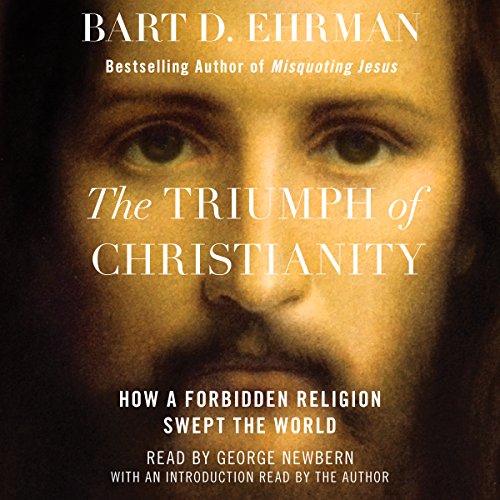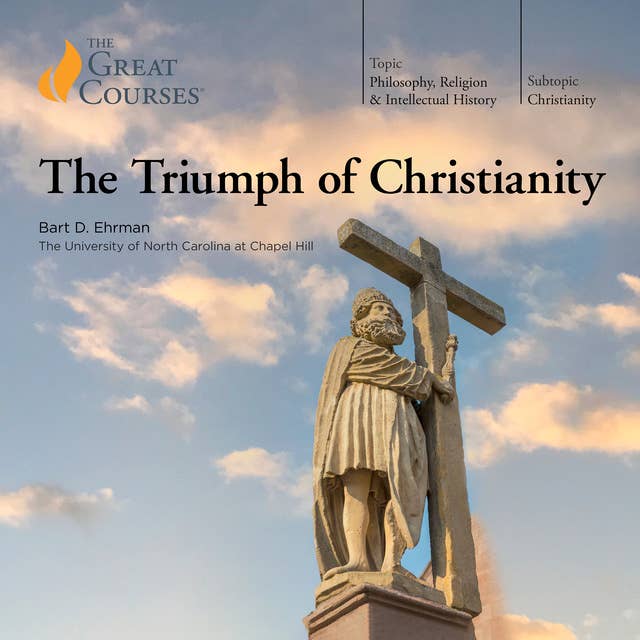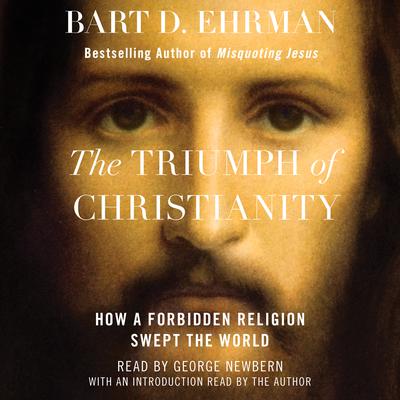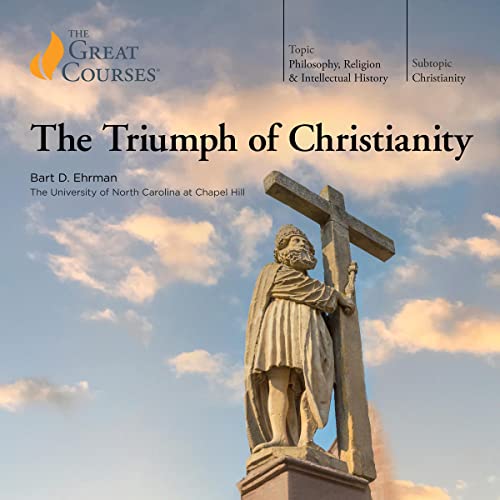Bart D. Ehrman’s “The Triumph of Christianity” explores how a small Jewish sect became the dominant religion in the Western world. It delves into historical and cultural factors that contributed to Christianity’s rise.
Bart D. Ehrman is a renowned scholar and historian. His audiobook, “The Triumph of Christianity,” offers a deep dive into the transformation of Christianity. The book examines the early days of Christianity and how it evolved into a major world religion.
Ehrman uses historical evidence and scholarly research to narrate this transformation. The audiobook is informative and engaging, making complex historical events accessible. Listeners gain insights into the factors that led to Christianity’s widespread acceptance. Ehrman’s expertise ensures a thorough understanding of this pivotal period in history.

Credit: www.audible.com
The Rise Of Christianity In A Pagan World
Bart D. Ehrman’s audiobook, “The Triumph of Christianity”, explores the rise of Christianity. It explains how a small Jewish sect turned into a dominant religion. This transformation happened in a world filled with various pagan beliefs. The audiobook dives deep into the early Christian communities and their journey. Let’s explore these intriguing aspects further.
Early Christian Communities
The early Christian communities were close-knit groups. They met in homes and shared meals. These gatherings helped them bond and support each other. They read scriptures and prayed together. These activities strengthened their faith and unity.
The leaders of these groups were often chosen by the community. They were responsible for teaching and guiding members. This structure helped maintain order and consistency. The early Christians also focused on helping the poor and sick. This care attracted more followers.
Challenges And Persecutions
The early Christians faced many challenges. They lived in a Roman world that worshipped many gods. Their monotheistic belief was seen as strange and threatening. This difference led to misunderstandings and conflicts.
Persecutions were common during this period. Christians were often blamed for natural disasters. They were accused of being disloyal to the Roman Empire. Many faced imprisonment, torture, and even death. Despite these hardships, their faith remained strong.
The persecutions had an unexpected effect. They made the Christian community more resilient. The stories of martyrs inspired others to join the faith. Their courage showed the strength of their beliefs.
| Aspect | Details |
|---|---|
| Early Christian Gatherings | Met in homes, shared meals, read scriptures |
| Community Leaders | Chosen by the group, guided and taught members |
| Challenges | Misunderstandings, conflicts with Roman beliefs |
| Persecutions | Imprisonment, torture, death, inspired resilience |

Credit: www.storytel.com
Key Figures And Events That Shaped Christianity
The audiobook “The Triumph of Christianity” by Bart D. Ehrman delves deep into the people and events that molded Christianity. Understanding these key figures and events helps grasp the religion’s rapid spread and enduring influence.
The Role Of Paul The Apostle
Paul the Apostle played a vital role in spreading Christianity. He traveled extensively, preaching the teachings of Jesus. His letters form a large part of the New Testament.
Paul’s missionary journeys took him across the Roman Empire. He established many Christian communities in different cities. His letters offered guidance and addressed issues within these communities.
| Journey | Regions Visited |
|---|---|
| First Journey | Cyprus, Asia Minor |
| Second Journey | Asia Minor, Greece |
| Third Journey | Asia Minor, Greece |
Paul’s teachings focused on Jesus as the Messiah. He emphasized faith in Jesus for salvation. His work laid the foundation for Christian theology and practice.
Constantine And The Edict Of Milan
Constantine the Great was a Roman Emperor who embraced Christianity. In 313 AD, he issued the Edict of Milan. This decree granted religious tolerance throughout the empire.
The Edict of Milan was a turning point for Christians. It ended years of persecution. Christians could now worship openly without fear.
Constantine’s support led to Christianity’s growth. He funded the construction of churches. He also convened the First Council of Nicaea in 325 AD.
- The Council addressed key theological issues.
- It aimed to unify Christian doctrine.
- The Nicene Creed was established.
Constantine’s reign marked a significant shift. Christianity transitioned from a persecuted faith to a state-supported religion. This change paved the way for its dominance in the Roman Empire.
Analyzing The Impact And Legacy
Bart D. Ehrman’s The Triumph of Christianity audiobook delves into the profound impact Christianity has had on society. This section explores the changes and legacy left by Christianity. We will focus on changes in social and political structures and influence on modern religious thought.
Changes In Social And Political Structures
Christianity transformed ancient societies. It redefined social norms and values. The religion promoted the concept of charity. This led to the establishment of hospitals and orphanages.
Political structures also evolved. Emperors began to adopt Christian policies. These policies influenced laws and governance. The Roman Empire itself became a Christian state.
Christianity’s spread also impacted education. Monasteries preserved and copied ancient texts. This contributed to the preservation of knowledge.
Influence On Modern Religious Thought
Christianity continues to shape modern religious ideas. Many denominations interpret biblical texts differently. This has led to a diverse religious landscape.
Modern ethical frameworks have Christian roots. Concepts like human rights and equality stem from Christian teachings. These ideas influence secular societies today.
Christianity also impacts interfaith dialogues. It encourages understanding and cooperation among different religions. This promotes global peace and tolerance.
| Aspect | Impact |
|---|---|
| Social Norms | Promoted charity and care for the needy |
| Political Structures | Influenced laws and governance |
| Education | Preserved ancient texts through monasteries |
| Ethical Frameworks | Shaped concepts of human rights and equality |
| Interfaith Dialogues | Encouraged understanding among religions |

Credit: audiobookstore.com
Conclusion
“The Triumph of Christianity” audiobook by Bart D. Ehrman offers deep insights into history. This engaging listen reveals Christianity’s rise and influence. Perfect for history enthusiasts, it provides a comprehensive understanding. Enhance your knowledge with this captivating audiobook. Dive into the triumph of a faith that shaped the world.



